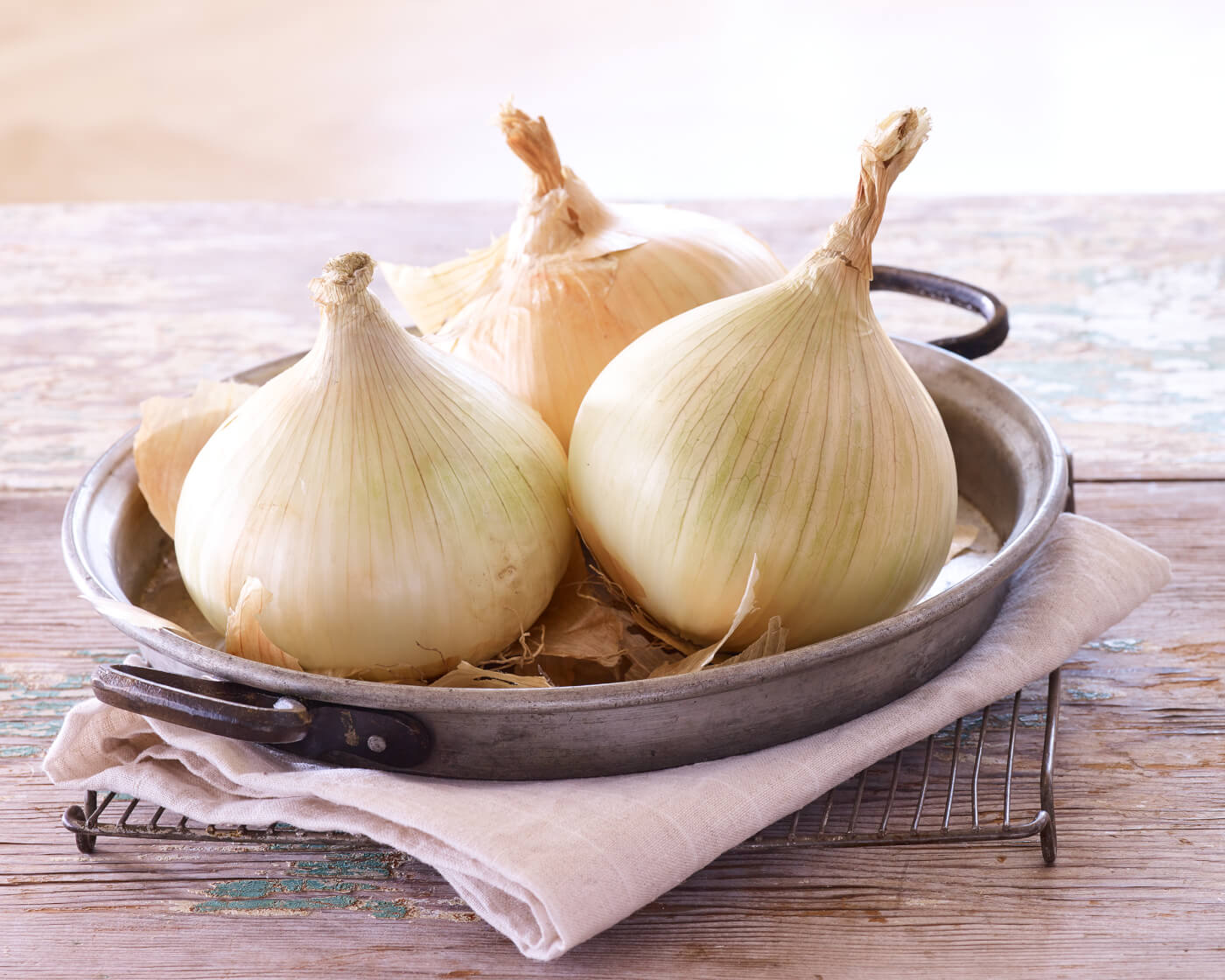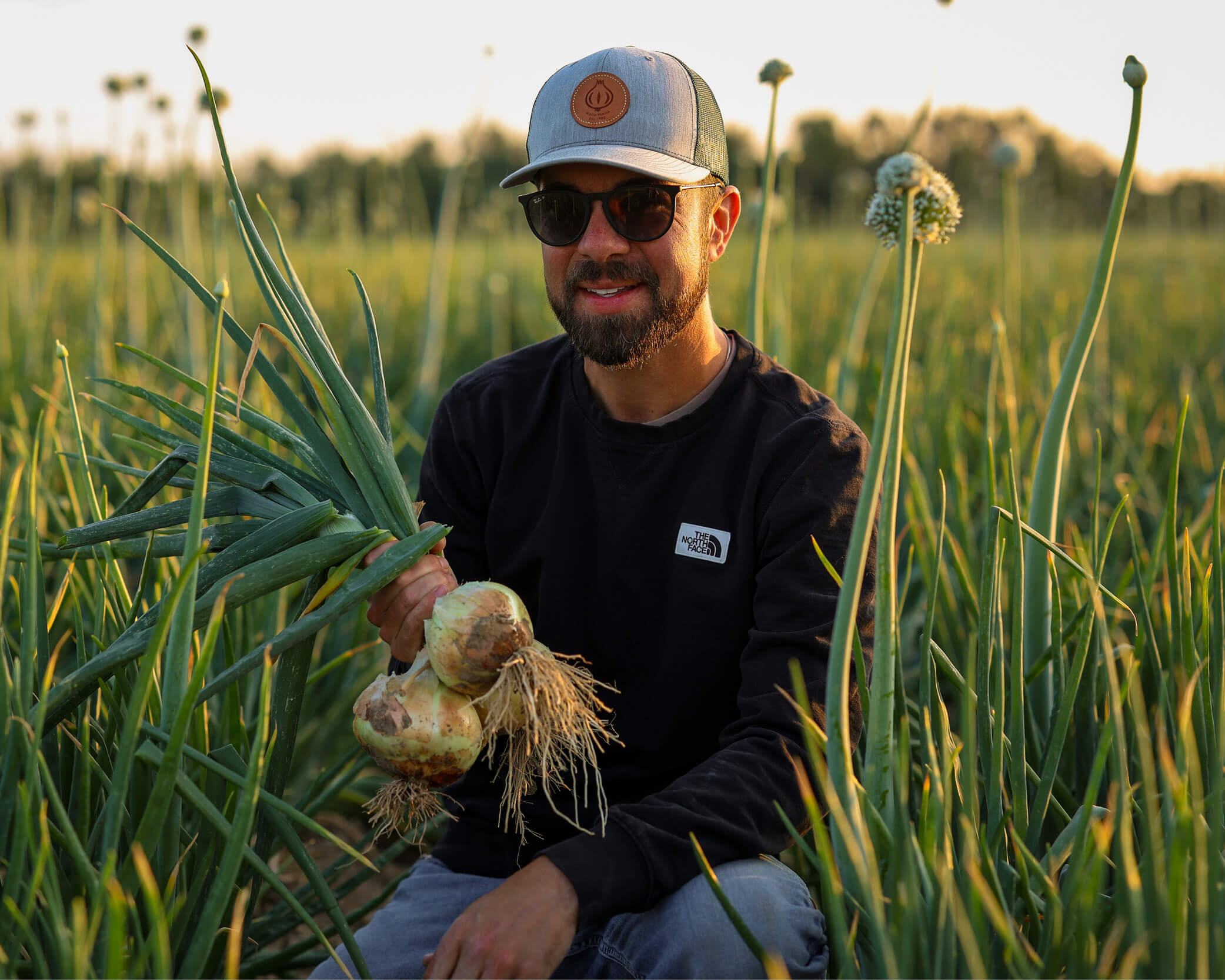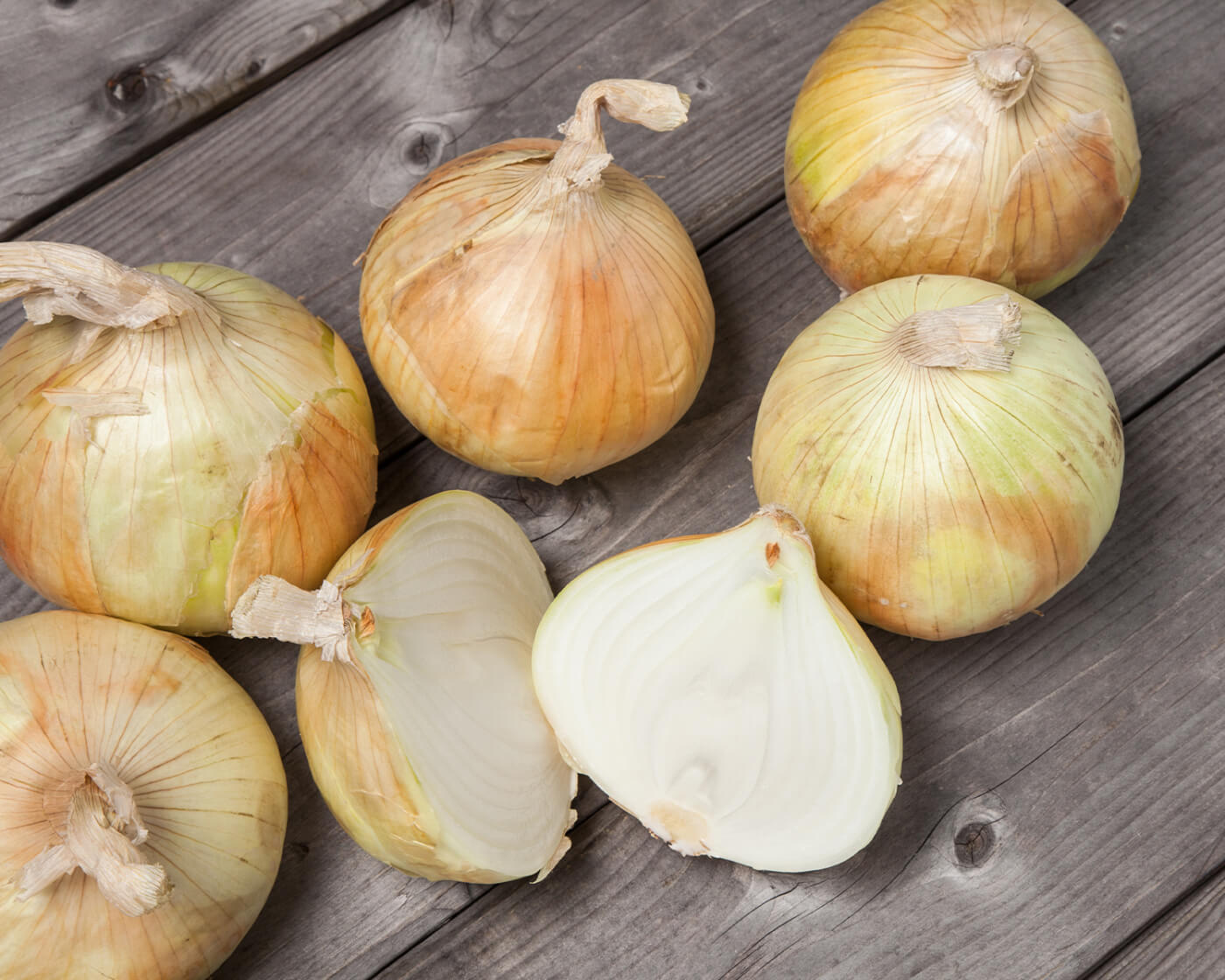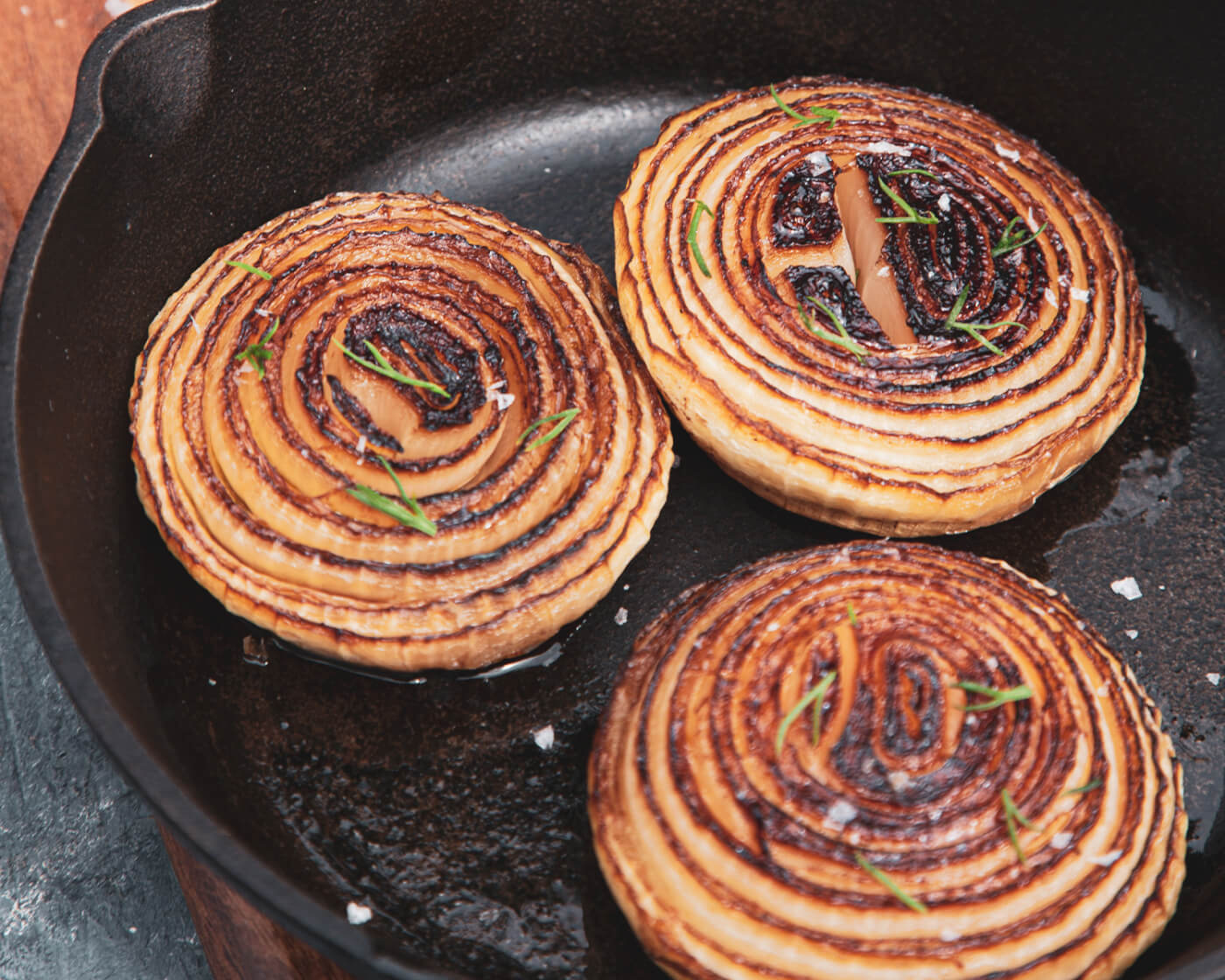
“Walla Walla” slips off the tongue like an incantation, and the taste of these sweet onions is nothing short of magical. In fact, their reputation is so esteemed that the Walla Walla Valley has been designated as a federally protected growing area. Much like Champagne in France, sweet onions produced outside of this region cannot claim the prestigious distinction of being a “Walla Walla.”
These bulbous beauties are one of a kind—each onion must meet specific quality standards before they hit grocery store shelves. Only 18 families grow Walla Walla Sweet Onions on their farms, but they wouldn’t be able to do so without generations of the Locati family’s enduring efforts. The story of Locati Farms is as intertwined with the land as it is with the onion itself—let’s peel back those layers together.

Layers of history
Michael Locati, a fourth-generation farmer, grows Walla Walla Sweet Onions on the very same land where his great-grandfather planted his first crop in 1905. Great-Grandpa Joe was gifted his first set of seeds by an immigrant from Corsica, a French island in the Mediterranean—and the faraway homeland of the Walla Walla Sweet Onion. The primary onion variety grown today at Locati Farms is a genuine heirloom—it hasn’t been modified since the original onion’s journey across the Atlantic over 125 years ago. Talk about staying true to your roots!
An a-peel-ing environment
The onion’s unique flavor profile is a direct result of the Walla Walla Valley’s rich growing conditions. The soil teems with high levels of organic matter, and the Walla Walla River plays a key role in the earth’s fertility—meandering capillaries imbue the land with a steady stream of nutrients and minerals. Michael reflects on the potency of the land: “You can try to grow these onions anywhere, but they won’t work well anywhere but here.”
Sweet onions thrive in low-sulfur soil, another distinct feature of the region. This allows them to develop very low levels of pyruvic acid—the compound responsible for the hallmark onion bite. What emerges from the earth is an onion with an exceptionally mild, subdued flavor and a delicate, almost fruity sweetness. “They have an upfront water explosion, followed by a mild onion flavor. They remind me of summer,” says Locati.

The good, the bad, and the bulb-y
Farming requires grit and tenacity—Michael is constantly having to pivot and problem solve in response to natural and economic conditions. For example, just one long rainy season can pose trouble for his entire onion crop, which relies on a consistent stream of small amounts of water. When it comes to the challenges of farming, Michael says, “I want people who buy these onions to know that a lot goes into that onion you’re about to slice for your salad. There have been a lot of eyes on that onion. A lot of time. A lot of people. Farming isn’t an easy thing to do. But most folks take that work for granted.”
That hard work has paid off in dividends. Locati Farms produces some of the very best sweet onions that Walla Walla has to offer. The farmers hand-select each onion—yes, every single onion is picked by hand for optimal size, shape, and sweetness. When you buy a Walla Walla Sweet at Metropolitan Market, you’re bringing home months of human resilience and fastidious attention to craft and detail.

Out of the onion-ary dishes
The high water content in Walla Walla Sweet Onions gives them a shorter shelf life than a traditional onion (about 2–3 months), but they’ll be in your belly well before that timeframe is up. Walla Walla Sweets are multi-faceted in the kitchen—they’re excellent raw or cooked. Slice them fresh and layer them onto sandwiches, toss them into salads, or mince them for sauces. They add exquisite dimension to braised meats and grilled fish. We’ve even seen them used in desserts. Ever heard of sweet onion ice cream? (Hey, we don’t judge.)
Try our caramelized Walla Walla onion dip recipe for a complex and irresistible summer picnic player.
What’s Michael’s favorite way to enjoy the harvest? His grandmother’s coveted salad recipe: slices of sweet onions, tomatoes, and cucumbers dressed with salt, pepper, apple cider vinegar, and olive oil. Every year, his family gathers to eat this special dish as the inaugural meal of summer. For the Locatis, their beloved matriarch’s recipe signifies a celebration of the time, labor, and dedication that went into the reaping.
A sweet partnership
Metropolitan Market has proudly partnered with Locati Farms for over a decade. Our sweet onions come exclusively from their family-owned operation because of the level of care that goes into every crop. Michael reflects on what this relationship means to him: “I really appreciate the support of Metropolitan Market—and it’s good to see how Metropolitan Market recognizes their farmers. The food that customers buy doesn’t just appear out of the air. There’s a family trying to put dinner on their table who grew those onions for you.”
On and on-ion
Want to see more of Locati Farms? Watch our YouTube video starring Michael as he guides us through their impressive onion fields. You just might catch a glimpse of an extra special sweet onion variety!
